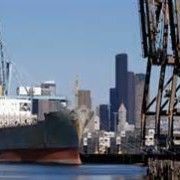Amazon Sunday Deliveries Are Overwhelming Postal Workers Says Supply Chain 247
Supply Chain 247 says U.S. Postal Service is straining to keep up with the volume of packages being delivered on Sundays. According to a recent article, “the flood of packages can be traced back to
Amazon, which kicked off a partnership with the USPS more than a year ago to deliver parcels seven days a week.”
Apparently, many USPS workers have been asked to work extended workdays, and in some cases, “for up to 21 days straight.”
“Sue Brennan, a senior public relations representative from the U.S. Postal Service, said increases are happening nationwide.”
Will the strain on the postal system inevitably impact customers? Has it already?






